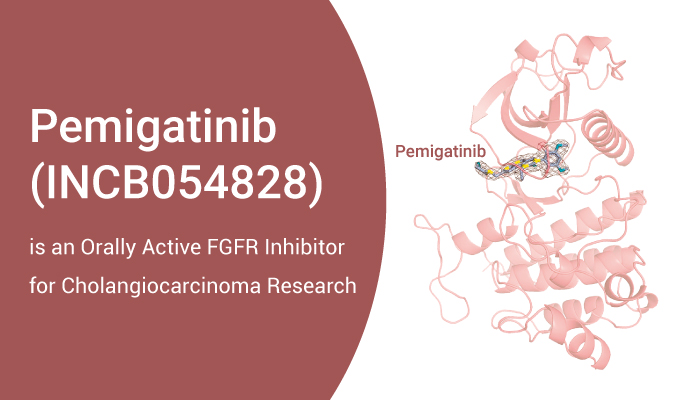FGF/FGFR signals regulate cell lineage formation, differentiation, proliferation and apoptosis of various types of cells. Specifically, it plays a vital role in many processes of embryonic development and adult homeostasis. Besides, FGFR is a highly conserved single transmembrane receptor tyrosine kinase (RTK). It consists of an extracellular ligand binding domain and a cytoplasmic conserved tyrosine kinase domain. The chromosomal translocation of FGFR leads to the formation of chimeric FGFR fusion proteins. Moreover, this typically leads to abnormal signal transduction and leads to the occurrence and development of human cancer.
Furthermore, FGFR plays an important role in various cellular functions, including proliferation, differentiation, apoptosis, and migration. The disorder of the FGFR signaling pathway contributes to tumorigenesis and tumor progression, drug resistance of anti-cancer therapy, and immune escape and angiogenesis in tumor microenvironment (TME). Due to its high recurrence rate and carcinogenicity, oncogenic FGFR gene fusion acts as a promising therapeutic target. Meanwhile, cholangiocarcinoma (CCA) is a rare but invasive tumor with poor diagnosis and limited treatment options. Nonetheless, the occurrence of CCA is mainly related to mutations that upregulate the FGF/FGFR signaling pathway. Today, we will introduce an orally active, selective FGFR inhibitor, Pemigatinib.
Pemigatinib (INCB054828) is an Orally Active FGFR Inhibitor for Cholangiocarcinoma Research.

First of all, Pemigatinib (INCB054828) has IC50s of 0.4 nM, 0.5 nM, 1.2 nM, 30 nM for FGFR1, FGFR2, FGFR3, FGFR4, respectively. Importantly, Pemigatinib has the potential for cholangiocarcinoma.
In the second place, this hypothesis is corroborated with in vitro cell-based studies in which cells expressing FGFR2-CLIP1 fusion are sensitive to Pemigatinib (IC50 value of 10.16 nM). Additionally, the cells with the addition of the N549H mutation are resistant to Pemigatinib (IC50 value of 1527.57 nM).
All in all, Pemigatinib (INCB054828) is an orally active FGFR inhibitor for cholangiocarcinoma research.
References:
Arudra K, et al. J Cutan Pathol. 2018 Oct;45(10):786-790.
Krook MA, et al. Cold Spring Harb Mol Case Stud. 2019 Aug 1;5(4).